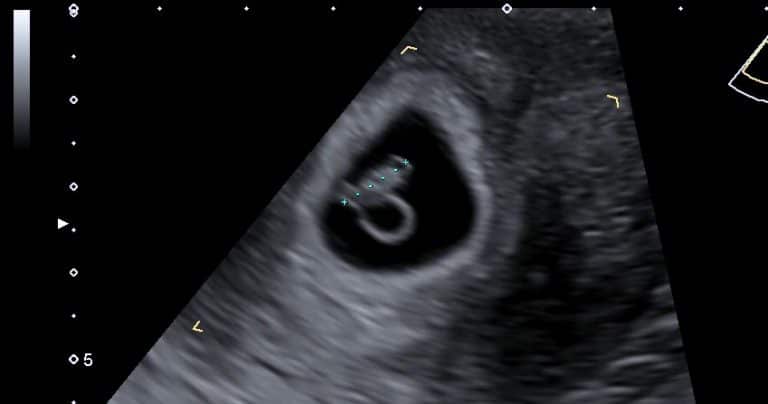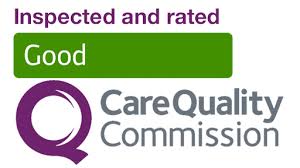Prenatal care is a journey filled with anticipation, wonder, and a myriad of questions. Among the many milestones expectant parents encounter, the baby anomaly scan holds significant importance. This detailed ultrasound examination provides a window into the developing world of your baby, offering insights that go beyond the initial confirmations of pregnancy. As an expert sonographer with over 30 years of experience in prenatal scanning, I aim to shed light on the intricacies of the anomaly scan, its purpose, and what parents can expect during this pivotal stage of pregnancy.

What Is an Anomaly Scan?
An anomaly scan, commonly known as the 20-week scan, is a thorough ultrasound examination performed between the 18th and 22nd weeks of pregnancy. This scan delves into the detailed anatomy of the fetus, assessing the development of vital organs and structures. Unlike early pregnancy scans that confirm the presence of a heartbeat and determine gestational age, the anomaly scan provides a comprehensive overview of the baby's physical development.
During this scan, sonographers examine the baby's head and brain structures, face, spine, heart, stomach, kidneys, limbs, and more. The goal is to identify any developmental abnormalities or anomalies that may require further investigation or intervention. By meticulously examining each part, healthcare providers can ensure that the baby is developing as expected.
Why Is the Anomaly Scan Important?
The significance of the anomaly scan cannot be overstated. It serves several critical functions in prenatal care:
Early Detection of Congenital Anomalies: Identifying structural abnormalities at this stage allows for early planning and management. Healthcare professionals can coordinate care, offer treatments when possible, and prepare for any necessary interventions after birth.
Assessing Fetal Growth and Development: Monitoring the baby's size and organ development ensures that the fetus is growing appropriately. Deviations from the norm may indicate underlying issues that require attention.
Evaluating Placental Position and Function: The scan assesses the location and health of the placenta, which is vital for nutrient and oxygen delivery to the baby. Anomalies in placental position, such as placenta previa, can impact delivery plans.
Checking Amniotic Fluid Levels: Adequate amniotic fluid is essential for fetal development. The scan measures fluid levels to detect conditions like oligohydramnios (low fluid) or polyhydramnios (excess fluid), which may affect the pregnancy.
Providing Reassurance to Parents: Seeing a detailed image of the developing baby can offer immense comfort to expectant parents. It reinforces the bond and provides an opportunity to address any concerns with a healthcare professional.
What to Expect During the Anomaly Scan
Understanding what happens during the anomaly scan can help alleviate anxiety and prepare parents for the experience.
Preparation: Generally, no special preparation is needed. Unlike early scans, a full bladder is not typically required at this stage since the uterus has grown sufficiently.
The Procedure: Upon arrival, you'll be welcomed into the scanning room. You'll lie comfortably on an examination bed, and a warm gel will be applied to your abdomen. This gel facilitates the transmission of sound waves. The sonographer will then move a transducer over your abdomen, capturing images of the baby from various angles.
Duration: The scan usually takes between 30 to 45 minutes. However, this can vary depending on the baby's position and cooperation during the examination.
Viewing the Baby: Many parents cherish this opportunity to see their baby moving, stretching, or even sucking their thumb. The sonographer may point out different body parts and explain what you're seeing on the screen.
Communication: Feel free to ask questions throughout the scan. Sonographers are trained to guide you through the process and address any queries you might have.

Common Findings and What They Mean
The anomaly scan can reveal a range of findings, most of which confirm normal development. Understanding these findings can help in interpreting the results.
Normal Developmental Milestones: The scan checks for standard developmental markers, such as the four chambers of the heart, the structure of the brain, and the formation of limbs and digits. Confirmation of these markers is a positive indication of healthy growth.
Minor Variations: Occasionally, the scan may detect minor variations or soft markers. These are subtle changes that, on their own, are usually not cause for concern. For example, a small cyst in the choroid plexus (a part of the brain) often resolves on its own without any impact on development.
Structural Abnormalities: In some cases, the scan may identify structural anomalies such as cleft lip, spina bifida, or heart defects. Early detection allows for better planning and management, and in some instances, interventions can be made during pregnancy.
Chromosomal Indicators: Certain findings might suggest a higher risk of chromosomal conditions like Down syndrome. Additional testing may be recommended to provide more information.
Next Steps If an Abnormality Is Detected
Learning that an abnormality has been detected can be an emotional experience. It's important to know that support and options are available.
Further Diagnostic Tests: Additional tests such as amniocentesis or chorionic villus sampling (CVS) may be offered to provide more detailed genetic information.
Specialist Referrals: You may be referred to a fetal medicine specialist who can offer expert advice and outline potential treatment plans.
Emotional Support: Counseling services are available to help you process the information and make informed decisions. Connecting with support groups can also provide comfort and shared experiences.
Care Planning: Early detection allows for careful planning of care during pregnancy, delivery, and after birth. This ensures that both mother and baby receive the necessary support and medical attention.
Baby Scan Services at International Ultrasound Services
At International Ultrasound Services in London, we are committed to providing exceptional care during your prenatal journey. Our extensive experience and dedication to excellence make us a trusted choice for expectant parents.
Expert Sonographers: With over three decades in the field, our sonographers possess unparalleled expertise in prenatal imaging. Their skill ensures accurate and thorough examinations.
Advanced Technology: We utilize the latest ultrasound equipment to capture high-resolution images, allowing for detailed assessments of fetal development.
Personalized Care: Understanding that every pregnancy is unique, we tailor our approach to meet your individual needs. We take the time to explain findings and answer all your questions.
Comfortable Environment: Our clinic offers a welcoming atmosphere where you can feel at ease during your scan. We encourage you to share this experience with your partner or family members.
Comprehensive Reports: After the scan, we provide detailed reports and images that you can share with your healthcare provider or keep as cherished memories.
Frequently Asked Questions
Is the anomaly scan safe for both mother and baby?
Yes, ultrasound scans have been used in prenatal care for decades and are considered safe. They use sound waves to create images, which do not pose a risk to the mother or baby.
Can I find out the gender of my baby during the anomaly scan?
If you wish to know, the sonographer can often determine the baby's gender during this scan. However, this depends on the baby's position and visibility during the examination.
What if the baby is not in the right position for the scan?
Babies can sometimes be in positions that make it challenging to view certain structures. In such cases, the sonographer may ask you to move around or may schedule a follow-up scan.
Do I need to do anything special before the scan?
Generally, no special preparation is needed. It's advisable to wear comfortable clothing that allows easy access to your abdomen.
Will I receive images to take home?
Yes, we provide digital images of your baby that you can share with family and friends or keep as a memento.
Tips for Expectant Parents
Navigating pregnancy comes with its share of excitement and concerns. Here are some tips to enhance your experience during the anomaly scan:
Keep an Open Mind: While the scan provides detailed information, remember that it focuses on physical structures. Not all conditions can be detected through ultrasound.
Prepare Questions: Write down any questions or concerns beforehand. This ensures you don't forget to address important points during the scan.
Stay Relaxed: Try to remain calm and enjoy the experience. Seeing your baby can be a joyous occasion, and staying relaxed can help the process go smoothly.
Bring Support: Having your partner or a close family member with you can provide emotional support and share in the special moment.
Follow Up: If any follow-up appointments or tests are recommended, schedule them promptly to ensure timely care.
Understanding the Limitations of the Anomaly Scan
While the anomaly scan is a powerful tool, it's essential to understand its limitations:
Not All Conditions Are Detectable: Some abnormalities may not be visible on an ultrasound, especially functional issues that don't affect physical structures.
False Positives/Negatives: Occasionally, the scan may suggest an anomaly that isn't present or miss one that is. Further testing helps clarify any uncertainties.
Dependent on Technical Factors: Image quality can be affected by factors such as the mother's body type, the baby's position, and amniotic fluid levels.
The Role of the Sonographer
The expertise of the sonographer significantly impacts the quality and accuracy of the anomaly scan.
Technical Skill: Proficient sonographers are adept at obtaining clear images and identifying subtle anomalies. Their experience enables them to navigate challenges during the scan.
Communication: A good sonographer communicates effectively, explaining the process and findings in understandable terms without causing unnecessary alarm.
Professionalism: They maintain a professional demeanor, respecting your privacy and providing compassionate care throughout the examination.
Advancements in Ultrasound Technology
Ultrasound technology has evolved remarkably over the years, enhancing the capabilities of the anomaly scan.
3D and 4D Imaging: These technologies provide more detailed images of the baby, allowing for better visualization of facial features and movements.
Doppler Ultrasound: This technique assesses blood flow in the baby's heart and vessels, providing additional information about cardiovascular health.
High-Resolution Machines: Modern equipment offers superior image clarity, aiding in the detection of subtle anomalies that might have been missed in the past.
The Emotional Impact of the Anomaly Scan
Undergoing the anomaly scan can elicit a range of emotions for expectant parents.
Excitement and Joy: Seeing your baby in detail often brings immense happiness and strengthens the parental bond.
Anxiety and Worry: Concerns about potential abnormalities are natural. Open communication with the sonographer and healthcare provider can help alleviate fears.
Relief: Receiving confirmation of normal development provides reassurance and peace of mind.
Preparing for Potential Outcomes
While hoping for the best, it's wise to be prepared for all possible outcomes.
Educate Yourself: Familiarize yourself with common anomalies and what they might mean. This knowledge can help you ask informed questions.
Consider Support Networks: Identify friends, family, or support groups you can turn to if unexpected news arises.
Plan Ahead: Discuss with your partner how you might handle different scenarios, ensuring you're on the same page emotionally and practically.
Anomaly Scan and Cultural Considerations
Cultural beliefs and practices can influence how parents perceive and approach the anomaly scan.
Privacy Concerns: Some cultures place a high value on privacy regarding pregnancy details. Respecting these beliefs is essential in providing care.
Gender Disclosure: In certain cultures, knowing the baby's gender before birth is discouraged. Communicate your preferences to the sonographer.
Decision-Making: Cultural values may affect decisions following the detection of anomalies. Healthcare providers should offer culturally sensitive guidance.
Legal and Ethical Aspects
The anomaly scan also intersects with legal and ethical considerations.
Informed Consent: Before the scan, you should be informed about what the examination entails and any potential findings.
Confidentiality: Personal and medical information must be kept confidential, shared only with authorized individuals.
Autonomy: Parents have the right to make informed decisions about further testing and interventions without coercion.
International Ultrasound Services: Our Commitment
At International Ultrasound Services, our mission is to provide exceptional prenatal care that aligns with your values and needs.
Patient-Centered Approach: We place you at the heart of our services, ensuring that your experience is positive and empowering.
Continuous Learning: Our team stays updated with the latest advancements in ultrasound technology and prenatal care practices.
Final Thoughts
The baby anomaly scan is a significant milestone in the pregnancy journey. It offers a detailed glimpse into your baby's development and provides crucial information that supports healthy outcomes. Embracing this opportunity with knowledge and support can enhance your experience and ensure you are well-prepared for the arrival of your little one.
Contact Us
We invite you to experience our exceptional care at International Ultrasound Services. Our dedicated team is here to support you every step of the way. To schedule your prenatal scan or to learn more about our services, please reach out to us at.









